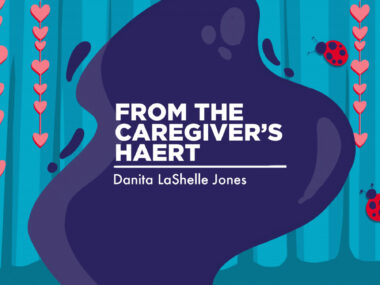When learning medical terminology, things can get lost in translation
Navigating the world of rare diseases requires good communication
Written by |

The panic in my production headset had reached a frenzy. Seconds before my boss was to walk on stage in front of thousands of people, the mechanism that was supposed to display his slides and videos, both to the audience and to online viewers, failed.
Although countless troubleshooting efforts were made, each time, the technical team repeated the disheartening phrase, “That didn’t work, either, Ms. Danita.” Unfortunately, because my boss was now on stage, I had to find a way to get the message to him without alerting the engaged audience.
I wasn’t worried. The moment we made eye contact, I communicated the problem to him.
“Presenter is down; your laptop doesn’t work,” I conveyed. But I was immediately met with a confused frown.
“The computer we use for your slides crashed,” I said with more detail. “You have no slides. You’ll have to speak with no slides.”
“What?” he finally mouthed.
I couldn’t understand where the disconnect was. I’ve spent over a decade managing events for my boss, so he should’ve understood what I was saying. And then it hit me: I wasn’t actually mouthing the message to him; I was signing it.
Two years ago, when my husband and I learned that our youngest twin was losing his hearing, I began taking American Sign Language (ASL) courses. Now, if I’m not thinking, I tend to slip into it if I’m trying to communicate with someone at a distance. The problem, however, is that most of the time, I’m talking to a person who doesn’t know ASL. That can often lead to a moment of frustration and confusion.
My boss was more than capable of running the presentation without his slides. In fact, he rarely uses slides, so it was easier for him to operate that way. But because I wasn’t using a language he understood, I delayed his ability to do what he does best.
That’s not the only time that poor understanding has led me into frustrating situations.
Adopting the vernacular
In 2021, when our daughter, whom we lovingly refer to as Ladybug, was diagnosed with hereditary angioedema (HAE), we immediately learned a different type of language.
We learned words like prodromes and flares, maintenance, preventive, subcutaneous, and intravenous. Suddenly, we were communicating medicine doses in milliliters instead of teaspoons or pills; and although it didn’t happen immediately, trips to the emergency room or doctors’ offices eventually sounded more like a causal conversation between medical professionals.
However, when explaining Ladybug’s HAE to grandparents, nonmedical family members, friends, or even her siblings, I quickly learned that using medical terms and jargon was the worst way to communicate what Ladybug needs.
At the height of my frustration, when what I deemed a “simple explanation” of her condition and treatment led to more questions and misunderstandings, I realized something. Although we had a great support system, only my husband and I had been through extensive training, explanations, and HAE vocabulary lessons. Unless we were speaking with someone else on the same journey, no one else spoke the language. But that’s not their fault.
Just because a person doesn’t know everything we’ve learned doesn’t make them less capable of giving support or even helping with treatment. Our job is to find a way to convey Ladybug’s needs so they can excel at whatever they’re tasked to do.
The late engineer and former Intel CEO Andrew Grove said it best: “How well we communicate is determined not by how well we say things but how well we are understood.”
Note: Angioedema News is strictly a news and information website about the disease. It does not provide medical advice, diagnosis, or treatment. This content is not intended to be a substitute for professional medical advice, diagnosis, or treatment. Always seek the advice of your physician or other qualified health provider with any questions you may have regarding a medical condition. Never disregard professional medical advice or delay in seeking it because of something you have read on this website. The opinions expressed in this column are not those of Angioedema News or its parent company, Bionews, and are intended to spark discussion about issues pertaining to angioedema.




Leave a comment
Fill in the required fields to post. Your email address will not be published.